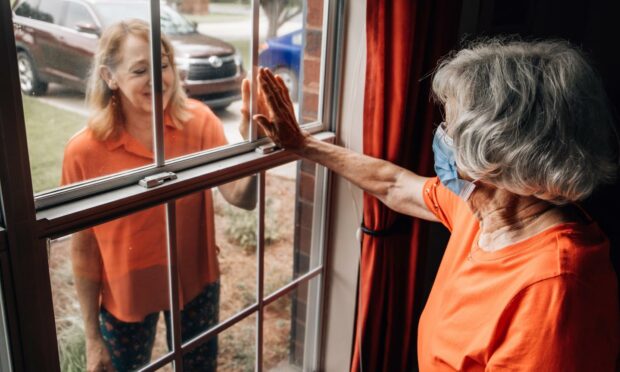New research has revealed the true impact that Covid has had on the four million people asked to shield across the UK.
Experts from Aberdeen University and NHS Grampian were part of the Health Foundation’s Networked Data Lab (NDL) team who analysed the effect shielding had on individual’s health outcomes.
The team discovered “significant unmet health needs” and worsening mental health among those classed as clinically extremely vulnerable – and have come up with a raft of suggestions to protect these people in the future.
Data showed the rate of deaths among this group was more than two and a half times that of the general population at the peak of the first wave in April 2020, with one in 2,500 dying compared to one in 7,000 of the general population.
By the end of August 2020, this group accounted for 19% of all deaths – while only making up 4% of the population in England.
The Health Foundation is calling for urgent action to be taken by those planning pandemic recovery with priority for the clinically extremely vulnerable to prevent further deterioration, based on the research findings.
Questions raised from shielding list
The Aberdeen leg of the project was led by Dr Jess Butler, who said identifying the clinically extremely vulnerable through their records was “challenging”.
The study showed there were “significant issues” in the way the shielding list was compiled, with variations across the country and differing qualities of data available.
This raised questions around how effectively vulnerable people were identified and if they had access to the support they needed throughout the pandemic, including food parcels, priority delivery slots for online shopping and medicine delivery.
Dr Butler said: “Clinicians in Grampian, across the acute sector and primary care, worked hard to identify those who were at risk and add them to the shielding list.
“This accounted for almost half of all people asked to shield and took a considerable amount of work. While this approach helped rapidly identify some individuals, there are limitations to an algorithm-driven approach.
“Greater access to data from general practice and better data sharing would improve identification. Investment in data sharing and data quality monitoring will be essential to improving the process.
“This is needed to provide the NHS with an accurate picture of the clinically extremely vulnerable population so that services can be designed and delivered to meet their needs.
“Better data is also needed so that in the event of future emergencies we can more effectively identify those at the highest risk of poor outcomes.”
Investment ‘urgently needed’
Kathryn Marszalek, senior analytical manager at the Health Foundation, highlighted that shielding has also had an impact on people’s mental health.
She said: “Over a period of 10 months, those advised to isolate at home have been unable to take part in usual activities, such as shopping for food, exercising, or seeing friends and family.
“Our research reveals the toll this has taken on the mental wellbeing of many clinically extremely vulnerable people who were already more likely to suffer from mental health conditions than the general population.
“Action is now needed by those planning the recovery at local and national levels to address the unmet need for NHS care and worsening mental health.
“Further investment is urgently needed to ensure that in the event of a future health emergency, we can quickly, accurately and consistently identify individuals to enable rapid planning and delivery of relevant support.”
